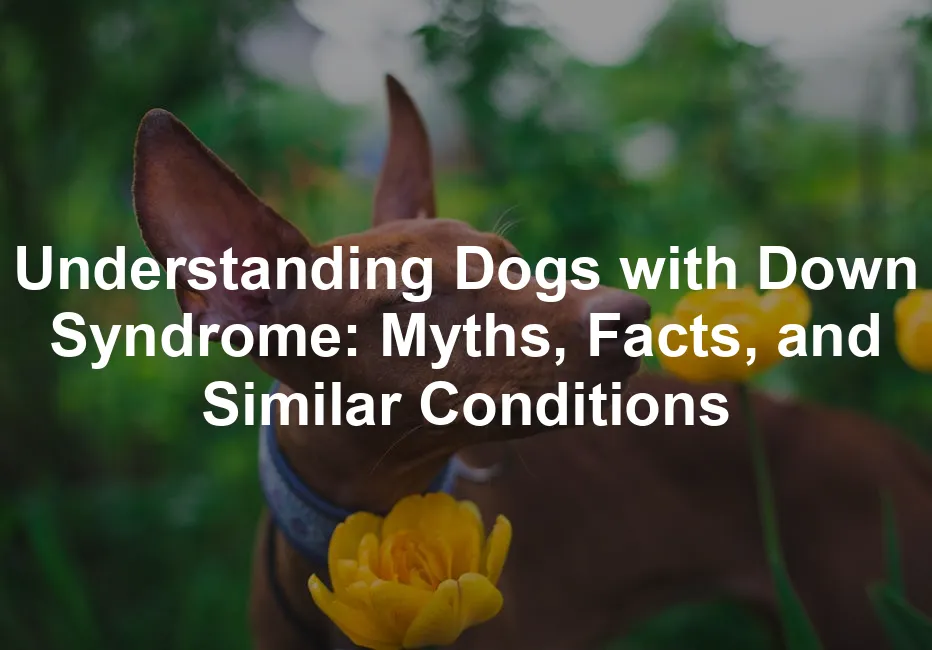Introduction
Have you ever wondered if dogs can have Down syndrome? While they can’t experience it like humans, some dogs may show traits reminiscent of this condition due to various health issues. Understanding these differences is crucial for responsible dog ownership. Let’s break down the facts and clarify any misconceptions surrounding this topic.
Speaking of health, ensuring your dog’s well-being starts with the right resources. The Dog Health Handbook is a fantastic guide that provides insights into understanding your pet’s health. It’s like having a mini-vet in your pocket, minus the white coat and the stethoscope!
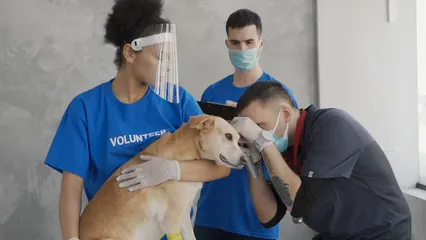
Summary and Overview
Down syndrome is a genetic condition unique to humans, caused by an extra chromosome 21, leading to various physical and cognitive characteristics. Dogs, on the other hand, have a different chromosome count, totaling 78 chromosomes. This fundamental difference means that dogs cannot have Down syndrome as it exists in humans.
Common myths suggest that dogs can have Down syndrome, but this isn’t accurate. Instead, certain health conditions can present symptoms resembling those of Down syndrome. For example, conditions like congenital hypothyroidism or pituitary dwarfism can lead to stunted growth and distinct facial features.

If you notice unusual traits or behaviors in your dog, it’s vital to consult a veterinarian. They can provide an accurate diagnosis and recommend appropriate care. Understanding these differences will help you better support your furry friend’s health and well-being. And hey, while you’re at it, why not invest in a Dog First Aid Kit? It’s like a safety net for your canine buddy!
Why Dogs Cannot Have Down Syndrome
Down syndrome is specifically a human condition. This genetic disorder results from an extra chromosome 21, leading to various physical and cognitive challenges. Dogs, however, possess a different genetic structure. They have a total of 78 chromosomes, which includes 39 pairs. This fundamental difference means that Down syndrome, as it exists in humans, cannot occur in dogs.
The chromosomal makeup of dogs is not just a matter of quantity; it’s also about function. When dogs have genetic disorders, they typically manifest differently. For instance, instead of an extra chromosome causing issues, dogs may have mutations or abnormalities that lead to specific health concerns. These can include conditions like congenital hypothyroidism or pituitary dwarfism. Understanding these distinctions helps pet owners recognize and address potential health issues in their furry friends.
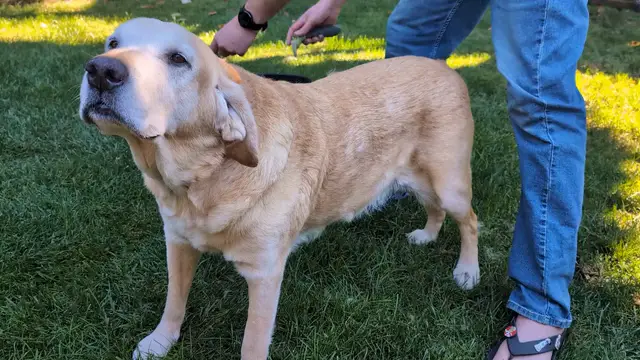
And speaking of understanding health, a Dog Health Supplements can be a great addition to their diet. Omega-3 fatty acids can help with skin and coat health, making your pup shine like a diamond!
Conditions That Mimic Down Syndrome in Dogs
While dogs cannot have Down syndrome, certain conditions may present symptoms that seem similar. Recognizing these conditions is essential for proper diagnosis and care. Always consult a veterinarian if you notice unusual traits in your dog. Here are some conditions that can mimic the traits associated with Down syndrome:
Overview of Similar Conditions
Several health issues can cause symptoms resembling those of Down syndrome. These conditions may lead to stunted growth, cognitive delays, or distinct facial features. Proper diagnosis is crucial, as each condition requires different care and management strategies.

1. Pituitary Dwarfism
Pituitary dwarfism is caused by a genetic mutation affecting growth hormone production. Dogs with this condition often experience stunted growth, resulting in a smaller stature than their peers. Key symptoms include a short body, a broad head, and delayed sexual maturity. Early detection and treatment can help improve their quality of life.
2. Congenital Hypothyroidism
This condition involves an underactive thyroid, impacting a dog’s growth and metabolism. Affected dogs may be smaller in size, have a longer tongue, and exhibit lethargy. Symptoms can include weight gain despite a normal diet and poor coat condition. Regular veterinary check-ups can help manage this condition effectively.

3. Brachycephaly
Brachycephaly refers to a condition common in breeds like Pugs and Bulldogs. These dogs have shorter skulls, leading to flat faces and potential breathing problems. The physical traits associated with brachycephaly can resemble some characteristics of Down syndrome. Owners should be aware of the health risks and ensure proper care to support their pets.
4. Hydrocephalus
Hydrocephalus is a neurological condition where excess cerebrospinal fluid builds up in the brain. This can lead to an enlarged head and cognitive impairments. Dogs with hydrocephalus may show signs of confusion or difficulty with coordination. Regular veterinary visits are essential for monitoring this condition.

5. Portosystemic Shunt
This condition involves abnormal blood flow around the liver. It can lead to growth issues and various health problems. Symptoms may include stunted growth, behavioral changes, and seizures. Diagnosis typically requires imaging studies, and treatment may involve surgical intervention.
Recognizing these conditions early can make a significant difference in your dog’s health and happiness. Always consult a veterinarian for proper diagnosis and tailored care. And don’t forget, a Pet Grooming Kit is essential for maintaining their appearance and hygiene!
Recognizing Signs and Symptoms

Common Physical Traits
Certain physical traits may concern dog owners. These can include a flat face, small stature, or unusual body shape. Other signs to watch for are a protruding tongue or an enlarged head. Recognizing abnormal behaviors is equally important. If your dog seems slower to respond or displays unusual coordination, take note.
Addressing these physical and behavioral concerns early can help improve your dog’s quality of life. Always monitor for changes in your pet’s appearance or actions. And if you’re looking for a way to keep your pup entertained, try Dog Puzzle Toys. They’re great for mental stimulation and can help keep your dog sharp!

Behavioral Indicators
Cognitive and behavioral signs are crucial to monitor in dogs. Look for signs of confusion, difficulty learning, or social interaction issues. Affected dogs may struggle with commands or exhibit anxiety. It’s essential to remain vigilant and consider veterinary evaluation if you notice these behaviors.
A veterinarian can help assess your dog’s cognitive health and provide guidance on the next steps. Early intervention can lead to better outcomes for your furry friend. And speaking of keeping your dog calm, consider a Dog Anxiety Vest. It’s like a warm hug for anxious pups!
When to Consult a Veterinarian
If your dog shows signs resembling Down syndrome, a veterinary consultation is vital. Don’t hesitate to seek help if you notice unusual physical or behavioral traits. Some signs, such as stunted growth or cognitive delays, may indicate underlying health issues.
It’s best to consult a veterinarian if you have any concerns. They can offer accurate diagnoses and tailored care options. Early diagnosis is key to ensuring your dog receives the support they need. And while you’re preparing for that vet visit, why not grab a Pet Carrier? It’ll make traveling with your furry friend a breeze!
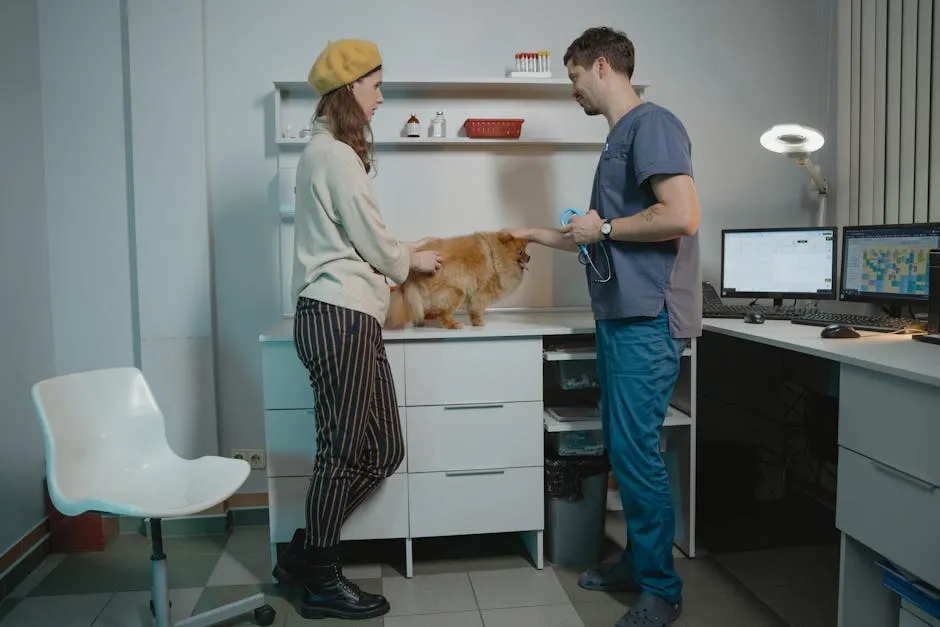
Conclusion
In this article, we learned that dogs cannot have Down syndrome. This condition is unique to humans due to their specific genetic makeup. However, dogs can face various health issues that may resemble the traits associated with Down syndrome. Conditions like congenital hypothyroidism and pituitary dwarfism can lead to similar symptoms. It’s vital for dog owners to stay vigilant and proactive. Regular check-ups with a veterinarian can help identify these conditions early. Remember, your dog’s health and happiness depend on your attention and care. And don’t forget to pamper them with some Dog Treats for training – they’ll love you for it!
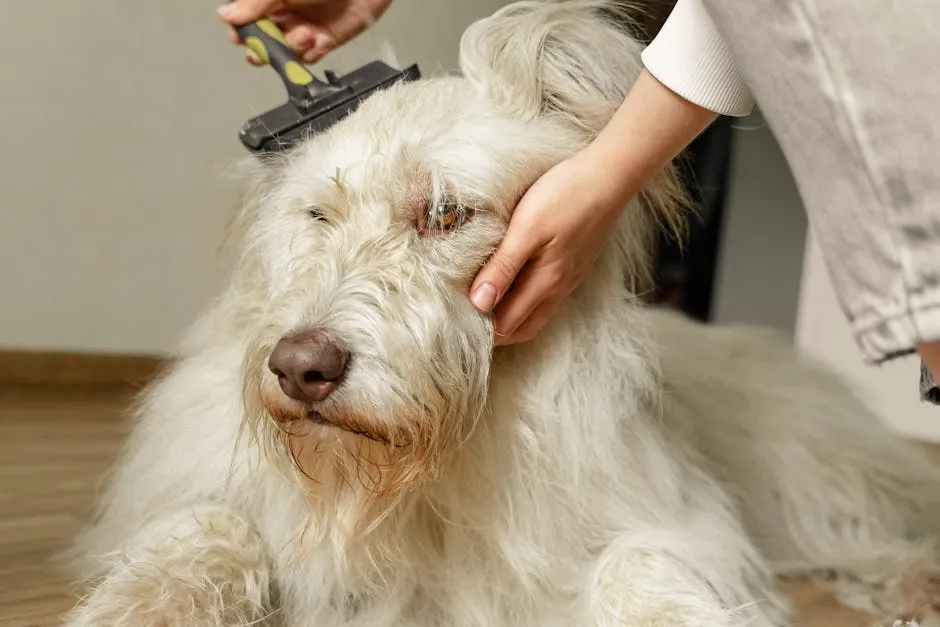
Can dogs have Down syndrome?
No, dogs cannot have Down syndrome. This condition is specific to humans, who have an extra chromosome 21. Dogs have 78 chromosomes, making Down syndrome impossible in them.
What are the signs that a dog might have a condition similar to Down syndrome?
Signs of conditions that resemble Down syndrome can include stunted growth, a flat face, or a protruding tongue. Additionally, dogs may exhibit cognitive delays or behavioral challenges. Look for signs of confusion or difficulty learning commands, as these can indicate underlying issues.
How can I care for a dog showing signs of developmental issues?
If you notice any concerning signs, consult your veterinarian. They can provide a proper diagnosis and recommend tailored care. Early intervention is key for managing your dog’s health. A personalized care approach can significantly enhance your dog’s quality of life.
Are there any breeds more likely to show traits similar to Down syndrome?
Certain breeds, such as Bulldogs or Pugs, may exhibit physical traits associated with conditions like brachycephaly. These breeds are prone to specific health issues that could lead to similar symptoms.
How do I find a veterinarian experienced in congenital conditions?
Look for veterinarians who specialize in genetics or internal medicine. You can check online reviews or ask for recommendations from local pet owners. It’s important to find a vet who understands your dog’s unique needs.
What should I do if I suspect my dog has a health issue?
If you suspect a health issue, don’t hesitate to consult your veterinarian. Early diagnosis and treatment are crucial. Your vet can help determine the best course of action for your furry friend.
Are there support groups for owners of dogs with special needs?
Yes, many online communities and local groups exist for owners of pets with special needs. These groups can provide support, advice, and resources to help you care for your dog.
Please let us know what you think about our content by leaving a comment down below!
Thank you for reading till here 🙂
All images from Pexels

